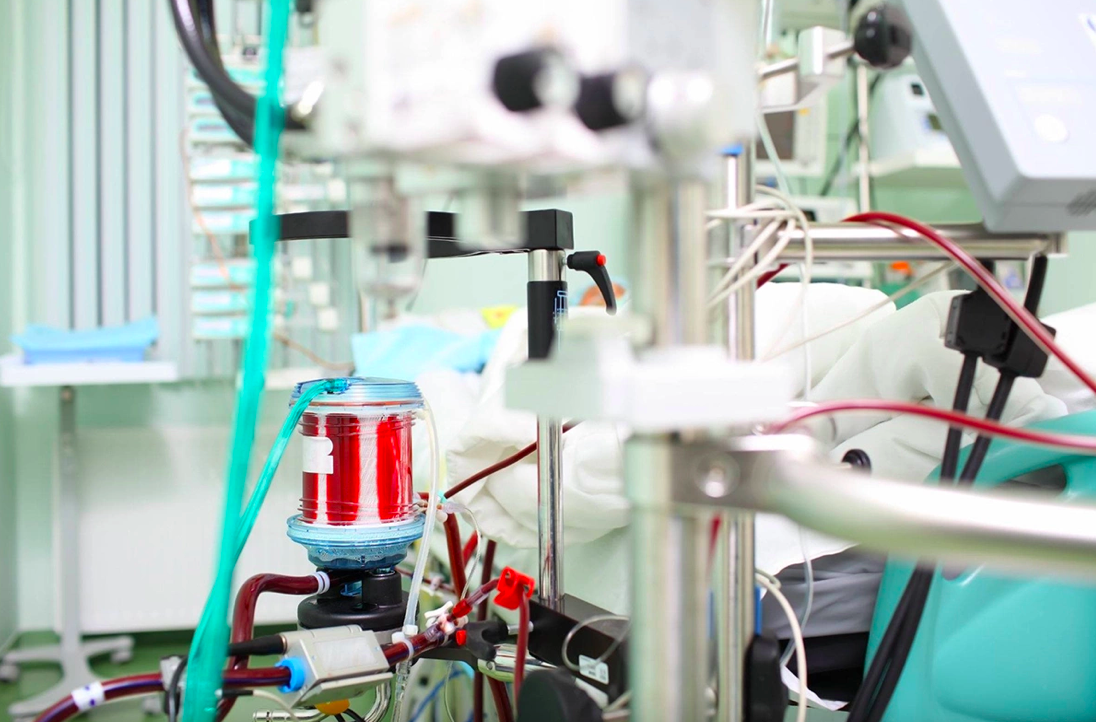On 14/8, a representative of Vinh Phuc General Hospital, Phu Tho, reported that a patient was admitted with left chest pain and diagnosed with acute myocardial infarction, a cardiovascular emergency with a high risk of death if not treated promptly. Doctors performed emergency percutaneous coronary intervention, discovered a complete blockage of the left anterior descending (LAD) artery, and successfully placed a stent.
However, after the intervention, the patient suddenly lost consciousness and went into ventricular fibrillation, a critical arrhythmia causing circulatory arrest. The medical team performed cardiopulmonary resuscitation, external chest compressions, and multiple electric shocks for 60 minutes. Although the patient's pulse returned, she remained in severe cardiogenic shock with severely impaired heart function, profound hypotension, and required three high-dose vasopressor medications.
Doctors at Vinh Phuc immediately contacted Bach Mai Hospital for support. Just 1.5 hours after the request, a team of experts arrived and set up an extracorporeal membrane oxygenation (ECMO) system at Vinh Phuc, promptly replacing the patient's failing heart and lung function.
After being stabilized with ECMO, the patient was transferred to the Intensive Care Center at Bach Mai Hospital for further treatment. There, she overcame dangerous phases such as severe cardiogenic shock and serious infection.
After 4 days of treatment, the patient's ECMO was successfully removed. She is currently recovering well, with significantly improved heart function and is eligible for discharge.
 |
Extracorporeal membrane oxygenation (ECMO) system. Photo: Medical Daily. |
Extracorporeal membrane oxygenation (ECMO) system. Photo: Medical Daily.
Associate Professor, Doctor Dao Xuan Co, Director of Bach Mai Hospital, attributed the success of the case to the close cooperation between the two hospitals. He emphasized the importance of deploying advanced technology like ECMO, allowing patients access to high-quality services at the provincial level and reducing risks associated with long-distance transportation.
Myocardial infarction often progresses silently without obvious symptoms, but sudden onset can cause atherosclerosis, heart failure, and lead to sudden death. Individuals at risk of myocardial infarction may experience some symptoms such as left chest tightness or pain behind the sternum. The pain usually lasts more than 20 minutes and can radiate to the neck, jaw, shoulders, back, right arm, or epigastric region. Other symptoms include palpitations, rapid heartbeat, shortness of breath, cold sweats, fatigue, nausea, and altered consciousness.
Le Nga












